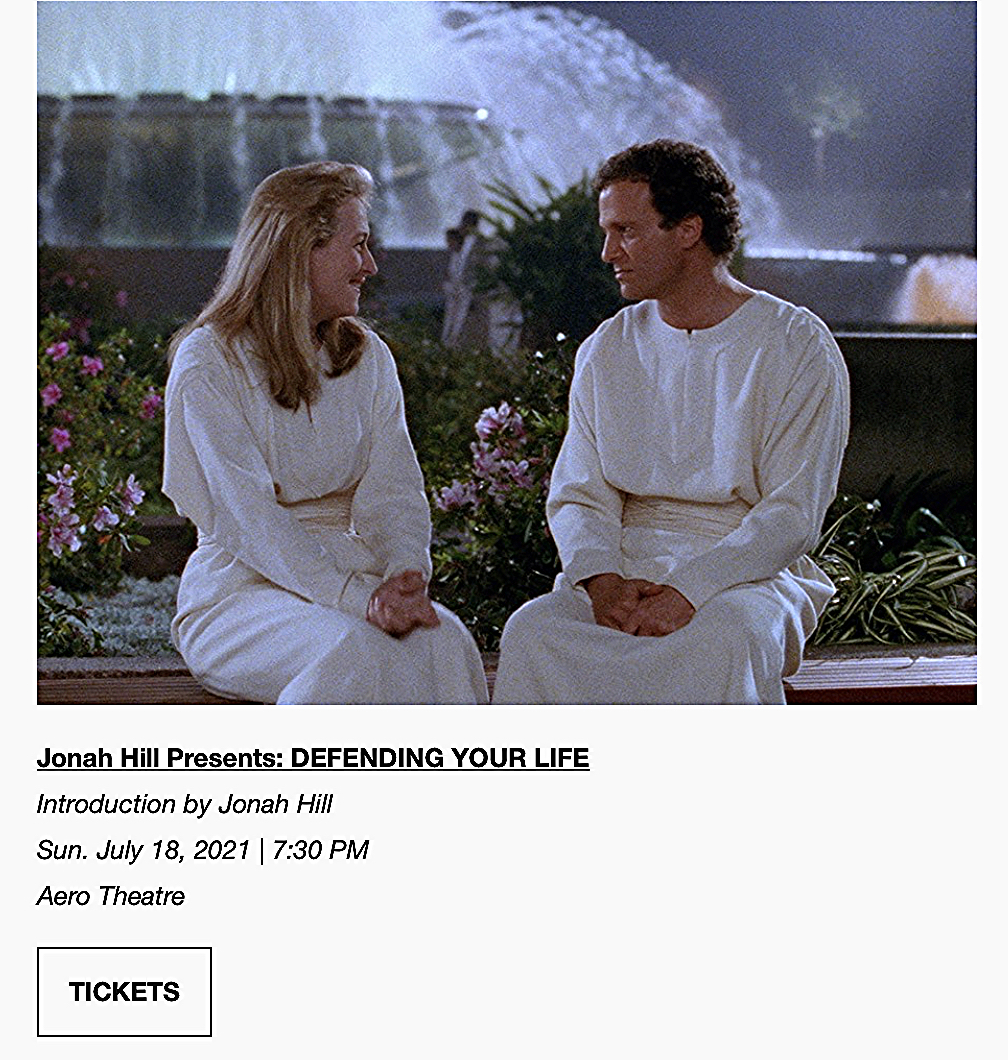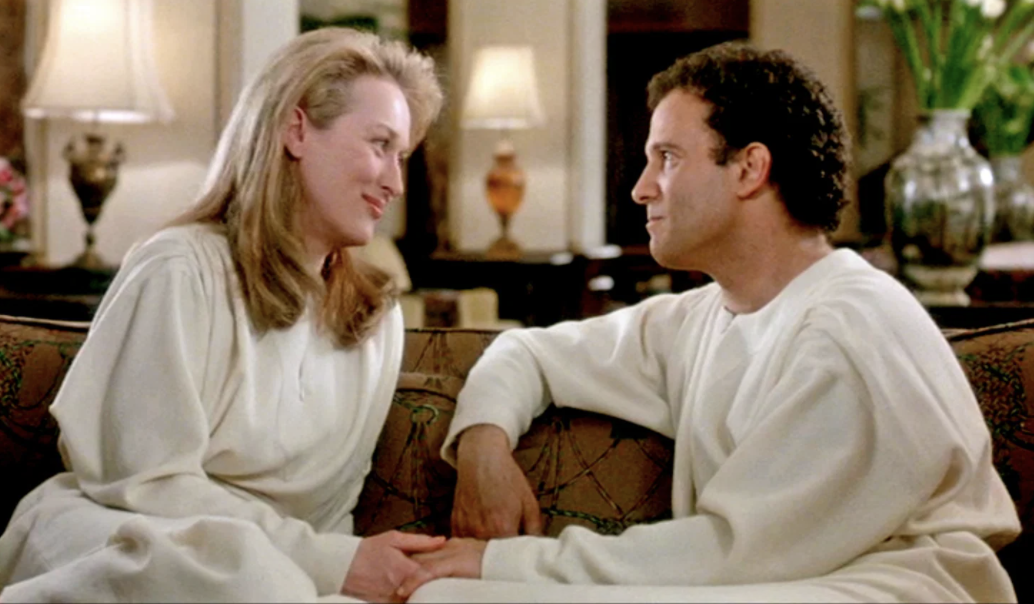Exactly what, I’m asking myself, will the great Jonah Hill have to say about the great Albert Brooks and his 1991 classic, Defending Your Life? Other than the usual hosannahs and platitudes, I mean — “This film means so much to me personally,” “Brooks is a genius” (which he is), “It’s so rare for a film to be funny and make you think and touch your heart at the same time,” etc. All of which are valid sentiments.
Defending Your Life basically asks viewers “how much of your life has been driven by fear and anxiety and cowardice, and how much of your life has been about truth and bravery and taking stabs at creativity and applying kindness rather than judgment…? We all conform as best we can because we want safety and security in our lives, but conforming too much will suffocate your soul…so where have you been putting most of your emphasis and energy?”
The one thing I didn’t like about Defending Your Life was its portrayal of Meryl Streep‘s “Julia” character –it seemed dishonest, or at the very least incomplete.
Brooks’ recently deceased “Daniel Miller” falls in love with Julia during his stay in Judgment City, which is a kind of purgatory for souls to be judged on their past lives, as they wait to see if their next phase of mortal incarnation will be a re-run or a step up the spiritual ladder. Daniel, we gradually learn, lived too much of his life in fear of this or that, and Julia, it seems, never had a fearful day in her life. She’s so perfect and gracious she’s almost suffocating. Nobody is that good.


11 years ago I riffed about films that have dealt with death in a “good” way: “The best death-meditation films impart a sense of tranquility or acceptance about what’s to come, which is what most of us go to films about death to receive, and what the best of these always seem to convey in some way.
“They usually do this by selling the idea of structure and continuity. They persuade that despite the universe being run on cold chance and mathematical indifference, each life has a particular task or fulfillment that needs to happen, and that by satisfying this requirement some connection to a grand scheme is revealed.
“You can call this a delusional wish-fulfillment scenario (and I won’t argue about that), but certain films have sold this idea in a way that simultaneously gives you the chills but also settles you down and makes you feel okay.
“Here’s a list of some top achievers in this realm. I’m not going to explain why they’re successful in conveying the above except to underline that it’s not just me talking here — these movies definitely impart a sense of benevolent order and a belief that the end of a life on the planet earth is but a passage into something else. I’ve listed them in order of preference, or by the standard of emotional persuasion.
“1. Martin Scorsese‘s The Last Temptation of Christ. 2. Stephen Frears‘ The Hit. 3. Brian Desmond Hurst‘s A Christmas Carol. 4. Warren Beatty and Buck Henry‘s Heaven Can Wait. 5. Henry King‘s Carousel (based on Ferenc Molnar‘s Lilliom). 6. Tim Burton‘s Beetlejuice. 6. Michael Powell‘s A Matter Of Life And Death, a.k.a. Stairway To Heaven. 7. Albert Brooks‘ Defending Your Life.
“I’m also giving a pat on the back to that old Twilight Zone episode called “Nothing in the Dark,” in which Robert Redford played a kind of angel of death in the guise of a wounded policeman.
“For me the four worst films about death — the shallowest and most phony-manipulative and least reassuring — are Ghost, Flatliners, What Dreams May Come and Death Becomes Her. These are movies that pull down their pants and play cheap little games for the enjoyment of those in the audience who are scared shitless of death and need to fantasize or joke about it in order to allay their fears.
“And the single most terrifying film about death as envisioned by fundamentalist Christian wackos is Michael Tolkin‘s The Rapture. One look at that film and you’ll be able to at least consider the idea that hardcore Christians have taken something naturally serene and peaceful and created a terrifying new-age mythology that would give Satan pause.
“Wim Wenders ‘ Wings of Desire doesn’t fit the HE mold. It’s not about passage from life to death as much as passage from death to life, being about an angel (Bruno Ganz) who falls in love with a circus girl (Solveig Dommartin) and wants to be mortal so he can experience love and pain and all the rest of it.”

